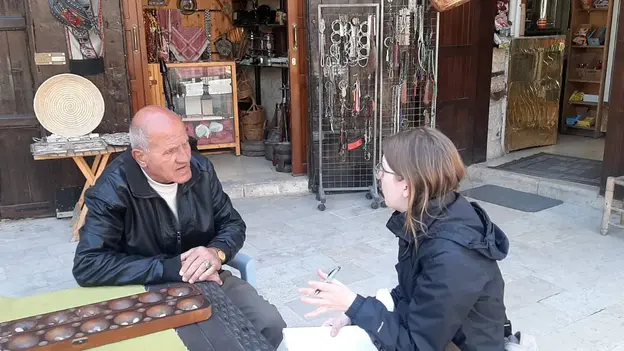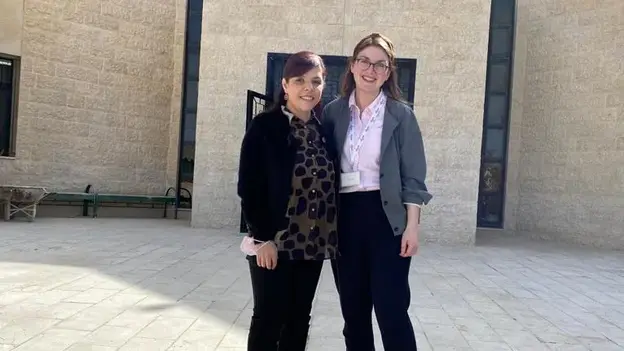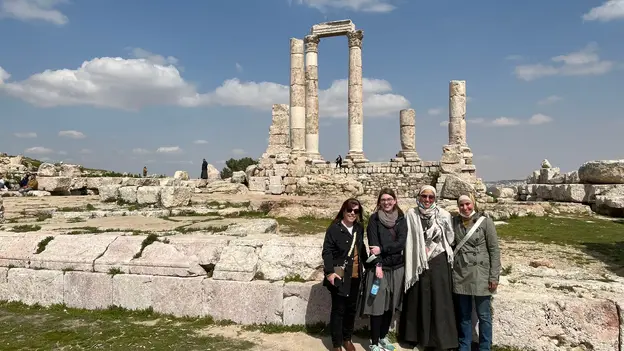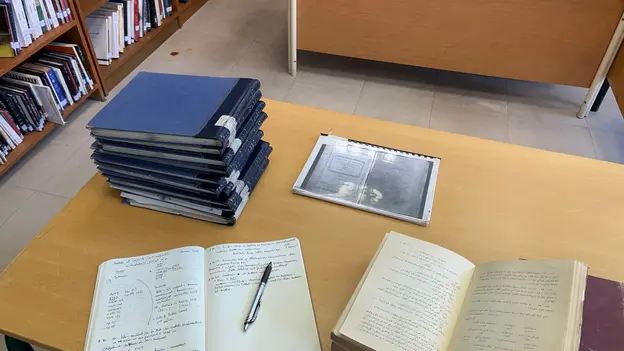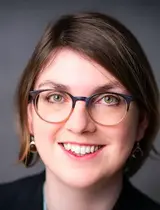Research Mobility Project
‘Who Do You Think You Are?’ – Social Hierarchies in Transition
Field Work
Being interested in the link between memory, difference, and belonging in the late and post-Ottoman period, AGYA member and historian, Prof. Dr. Barbara Henning, used a Research Mobility Project (RMP) grant for a research stay at the Institut Français du Proche Orient (IFPO) in Amman, Jordan. To explore historical concepts of social hierarchies and boundaries, she collected and studied diverse source materials from archives, interviewed local historians, and even participated in reunions and gatherings of families who trace their lineage back to the Prophet Muhammad.
The descendants of the Prophet Muhammad stand out as a privileged group to which access was and still is closely monitored.
What brought you to Jordan in the framework of your AGYA Research Mobility Project?
Barbara Henning: Many of these families are based in Jordan today, but their origins and networks extend into Syria, Iraq, or Palestine. Notably, the Hashemite royal family of Jordan also traces its roots back to the Prophet. Their example thus provides an opportunity to study how normative claims regarding difference in society were translated into the life worlds and everyday practices. Social hierarchies pertaining to descent from the Prophet are thus firmly anchored in the social textures and cultural memory of Jordanian society.
Before I came to Jordan, I had already mapped out Ottoman normative discourses on social order, focusing mainly on works of political advice literature. In addition, I was able to gather material on perceptions of the descendants of the Prophet in the Ottoman context, drawing on archives in Istanbul. My RMP project in Amman complemented these findings with much-needed local voices from historical actors in settings beyond the Ottoman capital and beyond the gaze of Ottoman bureaucracy.
Hierarchies and social order in transformation are your main research interest. What is challenging about your research?
Barbara Henning: Privilege and status are generally assumed, but less often talked about openly in my historical sources. For most actors at the time, these matters were taken for granted. To reconstruct social organization in a historical context, you need to follow subtle cues and hidden traces. Conflict and moments of rupture are good places to start: In the late and post-Ottoman period, reform-driven transformation processes radically altered social hierarchies, diminishing and obliterating former privileges of the descendants of the Prophet, and triggering protest from those concerned by these changes. These processes have so far not been studied extensively, and case studies for Jordan that explore these notions of social difference in Ottoman society and post-imperial settings are lacking entirely.
To study the negotiation and ensuing transformation of social status, I needed to combine different research methods, relying on a mix of archival research, field work and participant observations and expert interviews. During my time in Amman, I was able to consult a variety of relevant local archives and historical sites, such as the National Library of Jordan, the Center for Manuscripts and Historical Records at the University of Jordan (UJ), or the oral history recordings of the Al-Rowaya Foundation. I connected with informants and local experts in the field of local histories and cultural studies to extend my database and establish collaborations.
It was not easy to find rich source material in the archives, as I do not pursue research about certain persons, but on social hierarchies. They can manifest themselves in many unpredictable ways.
Fortunately, I managed to connect with families in Jordan that trace their genealogy back to the Prophet. With members of these families, I spoke about their family history and genealogies, (former) privileges and obligations that come with the family name. From these conversations, I also learned how they use social media platforms to maintain a global conversation about family history and compile genealogical information.
Did you engage in interdisciplinary encounters during your research stay?
Barbara Henning: Definitely! To better connect with the local research community, I have organised several bilateral and multilateral meetings with a variety of partners and stakeholders, including AGYA members, local faculty and PhD students as well as representatives of the DAAD. In particular, I invited Jordanian PhD students to an informal coffee hour to meet with Prof. Dr. Robert Schick, who is a renowned archaeologist and historian of the Byzantine and Islamic periods and leads excavation projects in Jordan. I am convinced that the material evidence and insights into the landscape and built environment provided by archaeologists enrich the more text-based research I am doing.
Moreover, I met with my fellow AGYA member Prof. Dr. Suhair Sunoqrot. She supported and accompanied me during my research activities in and around Amman. Together we entered into a fruitful dialogue about the differences and potential interfaces between natural sciences and humanities. In particular, we discussed possible contributions of case studies from her field of pharmaceutical science to an upcoming AGYA book project on the History of Plants Across the Mediterranean that I am currently devising together with AGYA members Prof. Dr. Ali Elgayar and Prof. Dr. Konstantin Klein.
- Disciplines Involved
- History, Archaeology, Anthropology
- Hosting Institution
- Institut Français du Proche Orient (IFPO)
- Duration
- 2 month
- Project Title
- Who Do You Think You Are?’ Researching and Teaching Social Hierarchies in Transition
- Year
- 2022
- Funding Scheme
- Research Mobility Project
- Countries Involved
- Germany, Jordan
